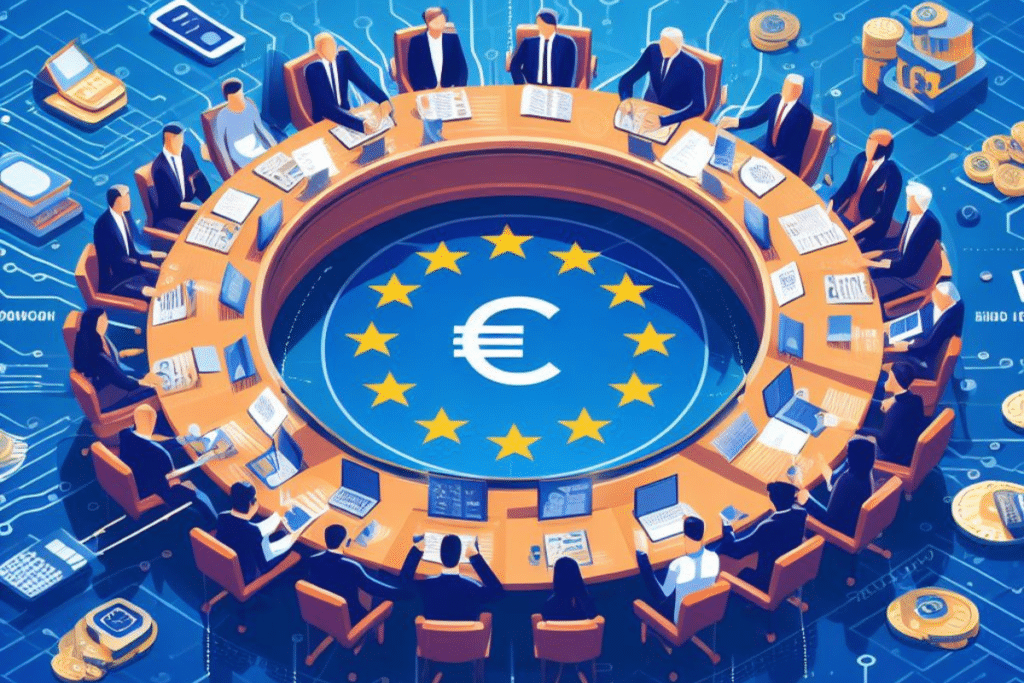The EU Council and Parliament Agree on Digital Passport
The EU Council and the European Parliament have recently reached a provisional agreement on the European Digital Identity (eID). However, this agreement raises legitimate concerns regarding the privacy of citizens, particularly in the context of a potential interconnection between the eID and the future central bank digital currency (CBDC).

The European Digital Identity (eID), a Paradigm Shift
The EU Council and the European Parliament have recently announced a provisional agreement on the European Digital Identity (eID), a development that raises significant concerns, particularly regarding privacy protection.
This agreement provides a framework for reliable and secure digital identification for all European citizens, with the aim of ensuring universal access to secure electronic devices. However, some experts are concerned about the potential link that might arise between the eID and the future central bank digital currency (CBDC) of the European Union.
Introduced in June 2021, the regulation provides for Member States to offer digital wallets to citizens and businesses, thereby linking their national digital identity to various documents such as driver’s licenses, diplomas, or bank accounts.
This approach will facilitate identity verification and the sharing of electronic documents, eliminating the need for private or common identification methods.
At first glance, this seems to offer some convenience, but the crucial question lies in the potential link with the ongoing development of the digital euro.
Concerns about Privacy
Digital identification is a significant technological advancement, but it can come with considerable privacy risks. According to Bob Roos, Member of the European Parliament and ECR Vice-Chair, it is “a very bad idea,” and he calls on all members of Parliament to vote against it.
“Directly afterwards, EU Commissioner Breton said: ‘Now that we have a Digital Identity Wallet, we have to put something in it…’, suggesting a connection between CBDC and eID.
They ignored all the privacy experts and security specialists. They’re pushing it all through.“
It is worth noting that advocates of the digital euro have already faced strong unexpected political opposition, mainly due to concerns related to privacy, government control, and even conspiracy theories. If the eID is linked to the CBDC, this could mean increased tracking and monitoring of the financial activities of European citizens.
Privacy Protection and Data Control
In order to address these concerns, privacy protection measures are necessary. The introduction of the zero-knowledge proof protocol, mentioned in the amendments related to the eID by the ITRE committee of the European Parliament (Committee on Industry, Research, Energy, and Telecommunications), aims to give European citizens absolute control over their personal data, thereby preventing any misuse or misuse of sensitive data.
However, it is essential for European policymakers to remain vigilant in ensuring full respect for citizens’ privacy rights and security. The potential association between eID and CBDC needs to be thoroughly examined to avoid any disproportionate infringement on the privacy of European citizens.
The future of digital identity in Europe must be based on principles of security and respect for privacy.
Maximize your Cointribune experience with our "Read to Earn" program! For every article you read, earn points and access exclusive rewards. Sign up now and start earning benefits.
Passionné par le Bitcoin, j'aime explorer les méandres de la blockchain et des cryptos et je partage mes découvertes avec la communauté. Mon rêve est de vivre dans un monde où la vie privée et la liberté financière sont garanties pour tous, et je crois fermement que Bitcoin est l'outil qui peut rendre cela possible.
The views, thoughts, and opinions expressed in this article belong solely to the author, and should not be taken as investment advice. Do your own research before taking any investment decisions.